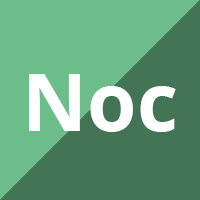Abstract
Background
This is the second updated version of the Cochrane Review published in Issue 3, 2010 and first updated in Issue 5, 2013.
People with a primary brain tumour often experience depression, for which drug treatment may be prescribed. However, they are also at high risk of epileptic seizures, cognitive impairment, and fatigue, all of which are potential adverse side effects of antidepressants. The benefit, or harm, of pharmacological treatment of depression in people with a primary brain tumour is unclear.
Objectives
To assess the benefits and harms of pharmacological treatment of depression in people with a primary brain tumour.
Search methods
We updated the search to include CENTRAL, MEDLINE, Embase, and PsycINFO to September 2019. As in the original review, we also handsearched Neuro‐Oncology, Journal of Neuro‐Oncology, Journal of Neurology, Neurosurgery and Psychiatry, and Journal of Clinical Oncology: for the current update we handsearched the latest three years of articles from these journals (up to November 2019).
Selection criteria
We searched for all randomised controlled trials (RCTs), controlled clinical trials, cohort studies, and case‐control studies of any pharmacological treatment of depression in people with a histologically diagnosed primary brain tumour.
Data collection and analysis
No studies met the inclusion criteria.
Main results
We found no eligible studies evaluating the benefits of any pharmacological treatment of depression in people with a primary brain tumour.
Authors’ conclusions
We identified no high‐quality studies that investigated the value of pharmacological treatment of depression in people with a primary brain tumour. RCTs and detailed prospective studies are required to inform the effective pharmacological treatment of this common and important complication of brain tumours. Since the last version of this review none of the related new literature has provided additional information to change these conclusions.
Plain language summary
Pharmacological treatment of depression in people with a primary brain tumour
The issue
People with brain tumours may experience epilepsy, memory problems, and fatigue. Depression is also common, and doctors might choose to treat this with antidepressants, since antidepressants are thought to be effective in other patients. However, antidepressants could be less effective, or could cause more side effects, in people with a primary brain tumour.
The aim of the review
We researched whether any drugs have been proven to be effective, and whether they cause significant side effects when prescribed to treat depression in people with primary brain tumours.
Main findings
We searched the medical journal literature to find high‐quality studies comparing the effectiveness of any one drug treatment for depression in people with a brain tumour against another treatment. Despite a thorough search, we could not find any studies and so cannot determine whether any drug is of benefit.
What are the conclusions?
We conclude that it is important to research whether drugs can treat depression safely and effectively in people with primary brain tumours.
Quality of evidence
No studies were eligible for this review.


